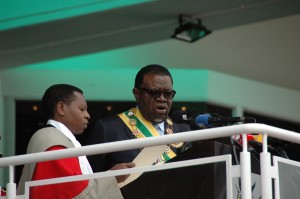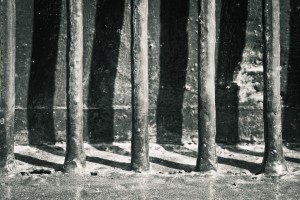by Henning Melber, ICWS Senior Research Fellow
The principle in dubio pro reo (“in doubt for the accused”) is that one is innocent until proven guilty are fundamental principles of justice.
But another motto suggests that justice delayed is justice denied. The long-awaited conclusion of the Caprivi high treason trial is a painful reminder of this.
Let us remember: over 140 people were arrested after the failed secessionist attempt on 2 August 1999 in and around Katima Mulilo. The murderous attack on the territorial integrity of the Republic of Namibia killed eight innocent people. Those arrested were accused and detained for up to 278 charges related to the act.

Map of the Caprivi Strip, via Wikipedia
In the course of identifying suspects, the security organs of the state violated laws too. When a lawyer of the Legal Assistance Centre disclosed the torture of prisoners to enforce confessions, these human rights violations were defended.
He argued: “Because of provocation by the separatists, some unfortunate excesses had resulted in the effort of our security forces to zealously protect their motherland.” And he claimed: “We value upholding our Constitution.”

President Hage Geingob via Wikimedia Commons
Article 12 (“Fair Trial”) of this Constitution stipulates under section 1(b) that a trial “shall take place within a reasonable time, failing which the accused shall be released.” And 1(d) confirms that all accused “shall be presumed innocent until proven guilty according to law.” Articles 24 (“Derogation”) and 25 (“Enforcement of Fundamental Rights and Freedoms”) offer additional food for thought. They illustrate the disparities between the codified rule of law and the failures to live up to its defined minimum standards.
In early August 2003, Amnesty International (AI) – erstwhile respected as a relevant and credible supporter of the liberation struggle through publicly condemning the human rights violations under apartheid, the illegal South African occupation of the country and the treatment of political prisoners – published a critical report.
AI expressed deep concern about the violation of pre-trial rights of the accused, which might undermine their right to a fair hearing based on international standards as defined in the United Nations International Covenant on Civil and Political Rights (ICCPR) and the African Charter on Human and Peoples’ Rights (ACHPR). It criticised the failure of the authorities to investigate and prosecute allegations of torture.
AI also cast doubt over the official versions concerning the deaths of 12 defendants in detention and suggested that unsanitary prison conditions and medical neglect were contributing factors.
In a press release AI finally called on the Namibian authorities “to immediately and unconditionally release all prisoners of conscience and ensure that the remaining defendants are tried in a fair manner.”
This resulted in accusations that AI is unduly interfering in domestic affairs. Since then, the number of those who died in custody without being found guilty exceeded more than 20. How many among these would have now been released as innocent?
In February 2013 the first 43 of the accused were released for lack of evidence. Now, with Judge Elton Hoff presenting his final judgement, another 35 of the accused were found not guilty during the last few days. From the more than 140 initially arrested, only 30 have been found guilty.
While Judge Hoff’s findings underline once again the relative autonomy of the judiciary, the justice system in general has failed. Despite numerous appeals by concerned members of civil society and human rights advocates, the authorities maintained an iron fist resembling features of the inhuman apartheid system, which also locked away and tortured people for political reasons.
A constitutional democracy or state under the rule of law (in German aptly called Rechtsstaat) should act differently. Policy makers, including the head of state, who delivered his maiden speech at the United Nations General Assembly in late September, have no reason to be proud.
Namibia has, not for the first time, failed its national and international obligations. The so-called ex-detainees, as much as those who mourn the loss of Frieda Ndatipo, should find it not difficult to relate to the plight of those detained innocently for 16 years and the harm also done to their families.
Injustice cannot be reversed. But an apology and related signs of regret and remorse might be a humble way to document insights into failures. Such abandonment of self-righteousness would underline the claim that the much-used metaphor of the Namibian house is indeed to be understood as a house, which is built for all.
Henning Melber joined Swapo in 1974. He is director emeritus of The Dag Hammarskjöld Foundation in Uppsala/Sweden, Extraordinary Professor at the University of Pretoria and the University of the Free State in Bloemfontein and a Senior Research Fellow with the Institute of Commonwealth Studies/University of London. His book Understanding Namibia. The trials of Independence was published 2014 with Jacana.
A version of this article was originally published in The Namibian.


Recent Comments